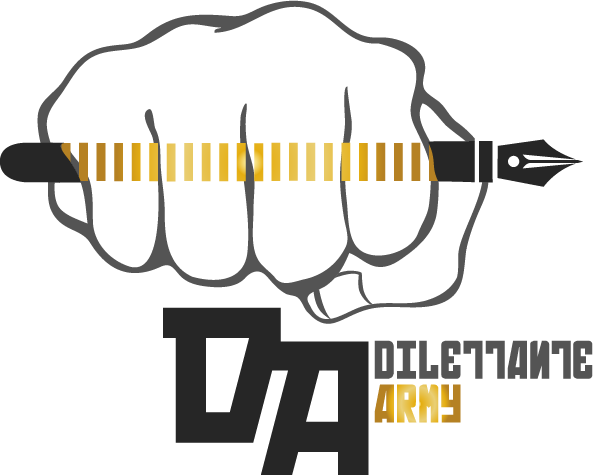Notes on Mission Accomplished
When we envisioned “Mission Accomplished,” we wanted to explore hollow victories, final acts, and political stunts. The obvious reference is to 9/11 and its recent 20th anniversary, which calls up deep political issues around the subsequent US invasion of Iraq. In 2003, George W. Bush’s speech/stunt/sight gag had announced the end of major combat operations: he preened on a tricked-out aircraft carrier in front of an enormous banner trumpeting “Mission Accomplished.” This year, President Biden promised to accomplish a similar feat by removing the last US troops from Afghanistan by September 11 (and he beat his own deadline, disastrously). The US economy is also predicted to be “back to normal,” with schools and theaters reopening and the virus vanquished, even as the delta variant continues to spread and most of the world remains unvaccinated. This issue looks at the ways we declare a triumph, especially when doing so is premature or impossible. What makes an ending (of history or anything else)?
“Mission Accomplished” was quickly hailed as a joke but it became a weathervane. It’s a phrase that opens up big questions about the rhetoric we believe, the rhetoric we don’t believe, and the rhetoric we are expected to act as if we believe even if we don’t. What does sincerity look like in politics? Is social trust possible? How do we use irony as a defense, a mechanism to distance ourselves as citizens from a suspect government? The comedy of political stunts like “Mission Accomplished” does not cancel out their tragedy.
In this issue, Suzanne Schneider questions our impulse to declare victory as a marker in the progress of history, history which (according to Hegel) is a place of reason in which the past is redeemed by the future. This logic underlies the politician’s invocation of sacrifice, including George W. Bush’s “mission accomplished” speech—people die in order to create a more-free future, a victory which justifies their loss. Instead, Schneider proposes that we think of this loss as not sacrifice but waste, an irreparable loss that does not vindicate the present. After the US recently left Afghanistan, the fact that the country was in a worse state than in 2003 made it clear that Afghanistan’s current state is not meaningful or necessary, and that withdrawal does not mean resolution.
Sarah Jaffe turns to Donald Trump’s revival of the phrase “mission accomplished” to describe his efforts to keep the Carrier plant in Indiana open and keep over a thousand manufacturing jobs in the US, even as the Rust Belt continued its overall economic decline and organized labor loses power. While unions punctuate their long struggles with minor victories like this, workers are trapped in larger structures that leave them no option but minor victories—they are required to save the jobs that they have even as they chafe against their employers’ exploitation. This ‘business unionism” approach, dating back to the Treaty of Detroit in 1950, allows workers to share in production’s profits but gives up control of the means of production. How do we organize for a world where “we need not affirm our own exploitation to justify our existence”?
Paul Swartz’s quiz “United Stunts of America” (with illustrated results from Lena H. Chandhok) explores America’s varied history of performative politicians, from Andrew Jackson to Beto O’Rourke. This journey through domestic anecdotes reminds us that while modern-day publicity stunts can still cause a stir (Alexandria Ocasio-Cortez’s Met Gala dress, anyone?) they are in no way unprecedented. There have, in fact, been a few staged photo-ops that ended up being make-it-or-break-it moments in political campaigns. Conquer this test and claim your rightful title of High School History Head Girl.
In “The Overconfidence Man,” Emily Ogden discovers a new kind of guy, one of the crucial archetypes of our age of grift and graft. While the confidence man is sleek and slippery, seducing us with his inscrutable charms or his overwhelming patter, the overconfidence man wins through on the wings of his unshakeable conviction that he is the hero of his own life. Exceptional! Unimpeachable! He’s terrifying because his fraudulence is utterly sincere. From Cary Grant, who stands in for the confidence man, to Will Ferrell’s Ron Burgundy, the standard-bearer of overconfidence men, Ogden reflects on the rise of the overconfident in multiple spheres of life and why we buy into their radiating self-delusions.
From the ridiculous to the sublime and all the way back to the earth, Anjuli Raza Kolb anchors this issue with two poems about the difficult materiality of memory and the delicacy, humor, and eros that somehow survive, even in damaged life. In “9/11 poem,” two unnamed lovers compare their thoughts about drones and “when we were arrested or surveyed” in the midst of exchanging sweet, sexy nothings–“She says that’s the gayest thing / you’ve ever said and I say yes, yes, fine”–as intimate with the ordinary structural insults of one another’s lives as they are with each other’s bodies. In “Qur’anic Asterisk,” hand-lettered Qur’ans displayed, ironically, at the Sackler Gallery near the Washington Monument, become “peepholes allowing us to peer back into the lives / of people we never knew.”
In his “cover” image illustration for Mission Accomplished, artist William Powhida has painted a portrait of a solitary George W. Bush in his own painting studio, facing a blank canvas, seemingly without the capacity or motive to examine the far-reaching consequences and possible futures still being created from his actions. Beyond the material consequences of forever war, the still-growing surveillance apparatus and military budget, continuing anti-Muslim and racist violence, this reactionary era is marked by the intensification, saturation, and reach of fraudulent political rhetoric that doesn’t need to be believed to be effective. You don’t even need to run a convincing confidence game in order to win. While official political rhetoric lacks the power to convince, it’s still not the only game in town. These charades are neither the limits of our politics nor of our language. The official missions are never fully accomplished, and the more we are willing to look, the more clearly we can see the bleakness of Pyrrhic victory as well as the fact of survival and the possibility in the unfinished. The picture that faces us may be ugly but it can be painted anew if we confront what’s there in the materials without illusion or sentimentality—and imagine them differently.



Dilettante Mail
Get updates from us a few times a year.